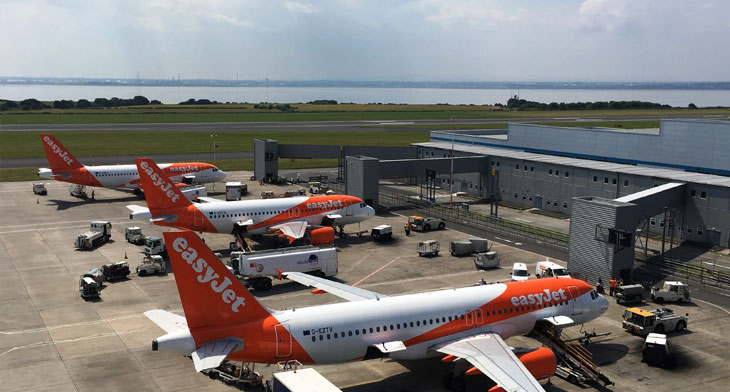


Airports alongside airlines and industry trade bodies are calling no EU governments to agree on harmonised travel restrictions and ensure their swift implementation to help the aviation and tourism sector survive the unprecedented crisis being caused by the coronavirus pandemic.
Airports Council International (ACI) Europe has urged all EU/ Schengen States not only to urgently endorse the European Commission (EC) framework for a proposed comprehensive coordination framework for travel restrictions, but also to adhere to it.
According to data released by ACI Europe, the recovery in passenger traffic across Europe’s airport network lost momentum in the second half of July before stalling in August, as a result of the chaotic patchwork of travel restrictions reinstated by different States. Passenger volumes at EU/ Shengen and UK airports decreased by -71% in August, with that percentage going further down towards the end of the month in many markets. The rest of Europe however proved more resilient with passenger volumes decreasing by -59%.
Commenting on how the current situation is clearly unsustainable for European aviation and tourism, Olivier Jankovec, Director General for ACI Europe, said:
Governments are telling us we need to adapt to the reality of COVID-19. If that means getting our kids back to school, there is no reason why it should not mean being able to travel in a way that is safe, and limits transmission risks. Many if not most of the current travel restrictions are not proportionate and not effective in combatting the epidemic. At the same time, they are heavily damaging livelihoods as well as EU citizens’ fundamental right to travel freely within the EU for business, pleasure or for family reasons. They need to be reconsidered urgently.
Push to introduce testing
As advised by the EC in its proposal, Jankoved urged governments to abandon quarantine requirements for travellers coming from high risk areas and replace them by testing for COVID-19 infection where needed. He reiterated that European Governments should follow the position of the European Centre for Disease Prevention and Control (ECDC), which considers that travel restrictions are neither an effective or efficient way of reducing COVID-19 transmissions in places where there is community transmission – which is the case across Europe.
The European Regions Airline Association (ERA) is also encouraging the use of a testing process prior to air travel to reduce the risk of contamination at the airport and in flight to allow for a greater movement of people in a safe and controlled manner. While the use of testing does introduce additional costs and logistical considerations, additional support is needed from governments to ensure its implementation and ultimately the support of European air travel.
Montserrat Barriga, ERA’s Director General, said: “By creating regional corridors and implementing a consistent approach to testing across Europe, we can provide passengers with not only the confidence to fly, but the confidence to travel without fear of sudden and unpredictable blanket quarantines.”
Catalyst for economic recovery
In addition to greater harmonisation for travel restrictions across Europe, the European Tourism Manifesto Alliance is also calling for international coordination to re-establish transatlantic travel. Acting as the voice of the European travel and tourism sector, the organisation underlined that while many Europeans were keen to travel during the summer, the inconsistent and constantly changing border restrictions along with confusion about quarantine and test requirements caused frustration for both businesses and travellers, detering booking and damaging materialisation for both leisure and business travel.
Proving the importance of tourism recovery as a catalyst for European economic recovery, the latest WTTC research shows that every 2.7% of increase in travel flows would generate or bring back one million jobs in the sector. Harmonising the inconsistent patchwork of COVID-19 rules and travel advice in Europe could lead to an increase in travellers by as much as 27% recreating 10 million jobs in travel and tourism across Europe.






